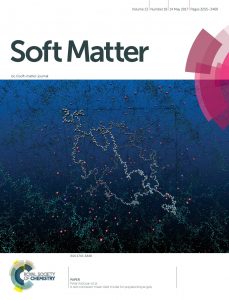This release provides a number of corrections for the ESPResSo 4.1 line. We recommend that this release be used for all production simulations. The interface has not been changed between ESPResSo 4.1.3 and 4.1.4. However, some bugs were discovered which can affect simulation results. Please find the list of changes below. The numbers in brackets refer to ticket numbers on https://github.com/espressomd/espresso
General corrections and improvements:
- Fix a bug in the LB CPU implementation that lead to incorrect LB shear stress tensors in thermalized fluids since 4.1.0 (#3847)
- Fix a bug in the LB CPU and GPU implementations that lead to
gamma_bulkbeing used in place ofgamma_shearin the second order term for forces in all previous ESPResSo versions (#3885) - Fix a bug that always set the epsilon value to zero in
P3MandP3MGPUactors since 4.0.0 (#3869) - Fix an issue in the Python script interface that rejected integer epsilon values in the
P3MandP3MGPUactors, and the'metallic'epsilon value in theP3Mactor (#3869) - Fix the exception mechanism in the
P3M,P3MGPUandDipolarP3Mcode to forward errors to the Python interface instead of silencing them or running infinite loops (#3869) - Fix range checks in the OIF code that failed to raise
TypeErrorexceptions (#3846)
Documentation and tutorials corrections and improvements:
- Explain the discrepancy between the Gay-Berne formula from the user guide and from the original paper (#3839)
- Add note explaining the P3M algorithm works with non-metallic epsilon values only when the box is cubic (#3869)
Build system and platform-related corrections and improvements:
- Fix several CMake warnings raised by CMake 3.17 and above (#3830, #3859)
Improved testing:
- Add a test to check the off-diagonal elements of the LB stress tensor in long simulations of thermalized fluids (#3847)
Under the hood changes:
- Remove unnecessary memory allocation on GPU from MPI worker nodes (#3911)



